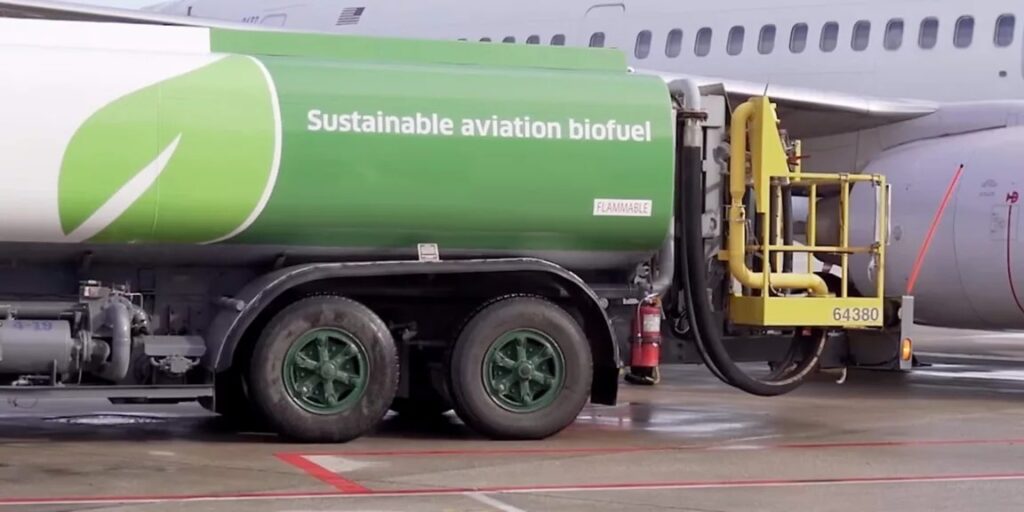As a leading force in global technology, Honeywell‘s Energy and Sustainability Solutions vertical is dedicated to pioneering forward-thinking solutions that revolutionize global operations. Its team of innovators, chemists, and engineers consistently pushes the boundaries of technology, driving progress in various industries. With a rich legacy spanning over a century, Honeywell stands as a pivotal player in facilitating the energy transition, leveraging its proven technological expertise and fostering collaboration across sectors.
In an exclusive discussion with The Interview World, Bryan Glover, Chief Technology & Growth Officer at Honeywell’s Energy and Sustainability Solutions division, delves into the global landscape of sustainable aviation fuel. He highlights Honeywell’s proactive efforts in developing essential technologies for sustainable aviation fuel production and emphasizes the role of innovation in aligning with the aviation sector’s net-zero goals. Here are the key insights from his interview.
Q: What strategies and advancements are being pursued to develop sustainable aviation fuel in the current context?
A: In the realm of sustainable aviation fuel (SAF), innovation has paved the way for four main pathways either under development or in commercial operation. One prominent method involves the conversion of vegetable oils and animal fats, a practice already widespread with hundreds of thousands of units produced daily. Another avenue leverages next-generation technology, transforming ethanol into SAF by repurposing it as a feedstock. While this technology is readily available, its widespread adoption is just emerging, presenting promising prospects for the future of aviation sustainability.
Furthermore, SAF production can also stem from the direct conversion of biomass, offering an alternative route to meet aviation’s increasing fuel demands while reducing environmental impact. These diverse approaches underscore the multifaceted efforts aimed at fostering sustainability within the aviation industry, promising a greener future for air travel through innovative fuel solutions.
Q: What innovative technologies and strategies is Honeywell employing to advance the development and production of sustainable aviation fuel?
A: At Honeywell, we are actively working on developing pathways to make advanced technology accessible within the next few years. Currently, there’s a technology known as e-fuels or electrofuels, which involves converting captured CO2 and clean hydrogen. Honeywell has devised a process capable of utilizing clean hydrogen, capturing CO2, and producing sustainable aviation fuel through a methanol route.
A significant portion of our research and development efforts is conducted at Honeywell’s technology center in Gurgaon, Haryana, India. This center has emerged as a pivotal location for us to innovate and introduce these cutting-edge technologies to the global market.
Recently, we introduced a technology that converts ethanol into sustainable aviation fuel (SAF), which holds particular significance for India. Additionally, we’re exploring power-to-liquids technologies, which involve transforming captured CO2 and clean hydrogen into aviation fuel to generate clean energy. Moreover, our focus extends to developing technologies that convert biomass into aviation fuel. These initiatives collectively form a comprehensive approach towards sustainable aviation fuel production.
Q: What key obstacles hinder the widespread production of sustainable aviation fuel, and how can these challenges be effectively addressed?
A: Timing stands as the paramount challenge in this endeavor. The complexity of investments, particularly within the power sector, entails the meticulous development of expansive facilities, demanding considerable time. Hence, initiating the process of transitioning ethanol into sustainable aviation fuel promptly is imperative. By commencing this journey early, we can facilitate a smooth transition. This strategic approach ensures that as ethanol blending and gas reach the targeted 20%, the conversion into aviation fuel can seamlessly follow suit. Consequently, early action paves the way for efficient integration, positioning us for a more sustainable and resilient future in aviation fuel production.
Q: What role do innovation and technology play in achieving the net zero goals of the aviation sector?
A: When it comes to meeting the energy needs of the aviation sector and addressing other challenging areas, such as diversification of technology is key. The energy demands across various sectors, be it aviation or road transport, are substantial, necessitating a diverse range of solutions. No single solution can adequately address all these demands. Aviation, in particular, presents unique challenges due to the reliance on hydrocarbons as a primary fuel source.
Hydrocarbons offer high-density fuel suitable for aviation use, and there’s significant infrastructure already in place utilizing these fuels. Therefore, transitioning away from them poses considerable difficulty. To address this, technological innovation plays a crucial role in developing alternative aviation fuels sourced from various feedstocks. This multifaceted approach is central to our mission at Honeywell. At Honeywell, we’ve leveraged our extensive experience in refining and petrochemicals, spanning over a century, to support renewable fuel technologies. Through our renewable Universal Oil Products (UOP) business, we’ve pioneered technologies for refining renewable diesel and sustainable aviation fuel from vegetable oils and animal fats. Today, this stands as the primary method for producing renewable aviation fuels.



